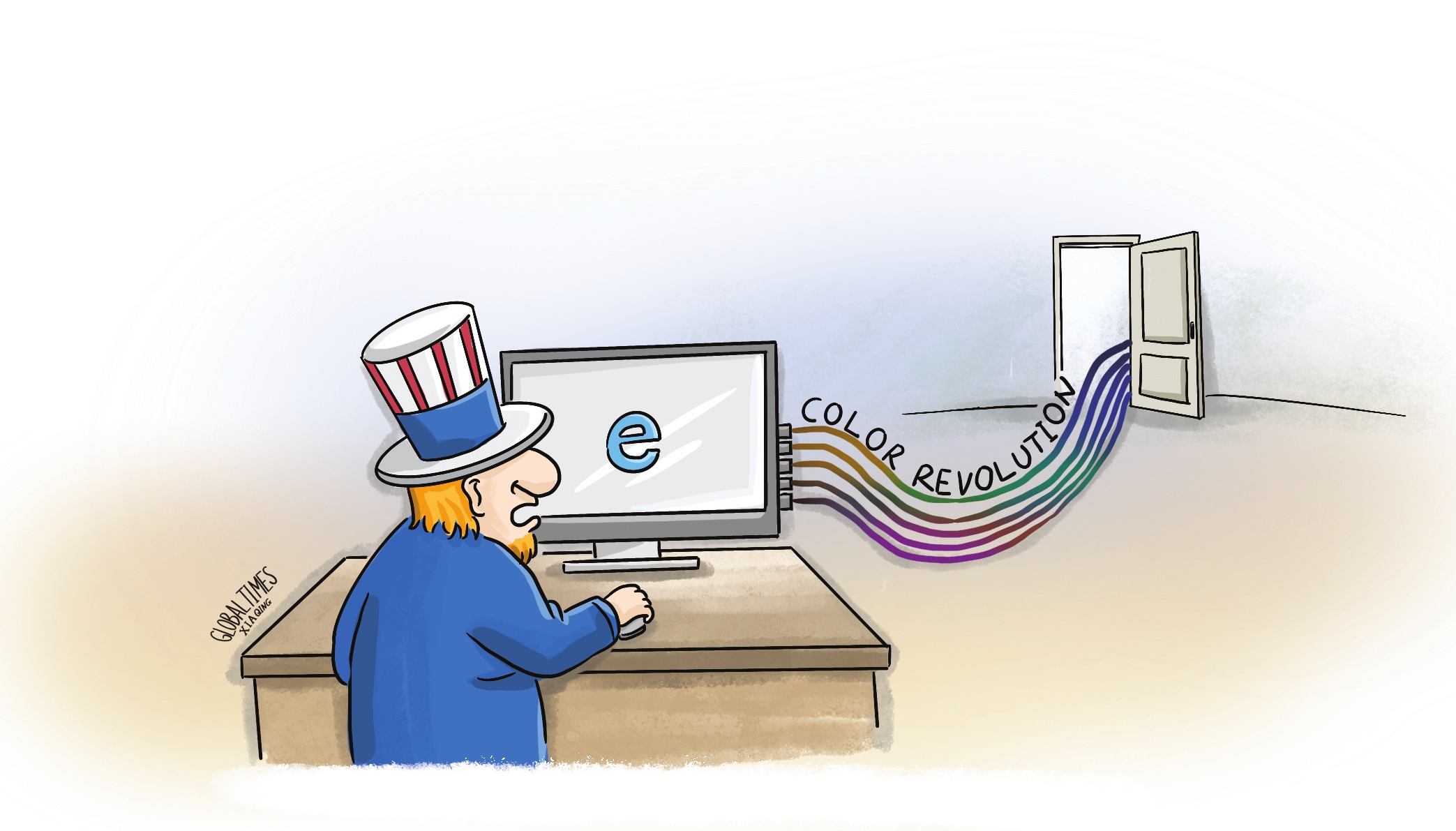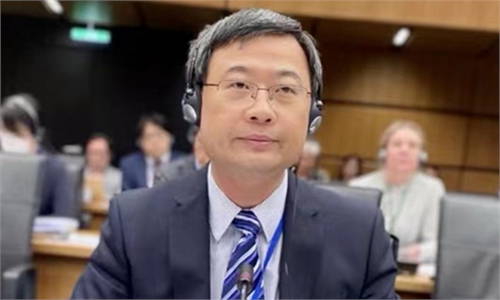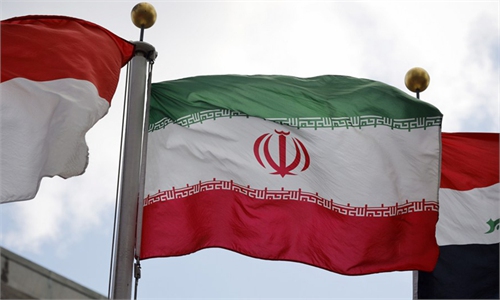Iran shows how the US uses ‘internet freedom’ to interfere in other countries' external affairs

Illustration: Xia Qing/GT
The US Department of the Treasury recently issued a general license for Iran, which authorizes technology companies to offer the Iranian people, as well as other firms, more options for secure, private, and outside platforms and services. Meanwhile, it encourages the export of software and tools to Iran that can be used to combat government cyber control tactics by bypassing Iranian government restrictions, particularly to allow Iranian developers to create homegrown anti-surveillance and anti-censorship apps.This general license was issued against the backdrop of the current unrest in Iran. The Iranian government has taken control of the internet, while the US government has taken measures, including issuing the general license, to get around it. Judging from the domestic developments in Iran and the reaction of the US and Western countries, it is a replica of the tactics used during the "Arab Spring." Washington's response is basically a continuation of the "internet freedom" strategy proposed by Hillary Clinton. Although 12 years have passed, Clinton's "internet freedom" still dominates the Democratic Party's policymaking perception.
There are three notable features of this license and the decision-making philosophy behind it. First, the current US administration insists on utilizing internet freedom as a tool monopolized by the US and the West to gain an asymmetric advantage over the unilateral subversion of other countries' regimes.
Meanwhile, the US and Western enterprises must obey and serve this cause of freedom. After Clinton lost to Donald Trump in the 2016 US presidential election, there was a political trend in the US to witch-hunt Facebook and Twitter, as these two companies were accused of failing to effectively block Moscow's alleged bid to influence the outcome of the election. The same thing happened in the 2020 US presidential election, during which Trump was banned from social media to eliminate his ability to rally for support.
Accordingly, the current US government's internet freedom strategy has been clearly exposed, as it allows the US to gain a specific asymmetric advantage over other countries externally, and lets certain political factions within the country gain an asymmetric advantage over other political factions and figures internally.
Second, the political-business relationship, which is characterized by the unconditional obedience of US companies to the political orders of the US government, is the institutional basis for the continuous introduction of such policies. From Clinton's internet freedom strategy in 2010, to the current general license for Iran, it all shows that the American-style government-business ties remain the basis of this kind of policy.
US companies have been tied to the "chariot" of US diplomacy. When the US uses them to implement US foreign strategies, the top priority is to challenge and subvert the regimes of other countries; amplify political and social unrest in rival states; and utilize software products and services provided by American companies in order to shape and manipulate the perceptions of other countries.
Third, after the end of the Cold War, the general perception of the US around the world has been one of a continuous decline of strategic decision-making and policymaking capabilities. Though US policymaking has always been marked by a multisectoral, competitive bureaucratic model, the lack of coherence in its policies, or policies that are inconsistent with their intended purpose, still delivers a strong sense of chaos.
In terms of the US' policies toward Iran, when there was nothing going on in Iran, Washington imposed strict export controls on Iran, not to mention cloud computing services to the extent that even games like World of Warcraft were under embargo. However, after the turmoil in Iran, Washington began to encourage the export of various products and services to Iran. The American hegemony comes to the fore.
Whether it is for the internet, or global cyberspace, it is not good news that Washington is so determined to use internet companies and social media platforms as tools to launch the "color revolution" in this undisguised way and to pursue policies in such a symbolic rather than practical way. It's a sort of "kiss of death" for the US companies involved - other sovereign nations can require these companies to prove they are not tools of subversion of the US government before entering their markets.
For the US, asking other countries to accept the special right of the US and its allies to subvert other countries' regimes asymmetrically is even more nonsensical. For actors who are concerned about the future of the global cyberspace, it will be necessary and urgent to build an effective mechanism to eliminate the harmful influence brought by the US and seek a practice that can promote the sound development of the internet and global cyberspace.
The author is a professor at the School of International Relations and Public Affairs of Fudan University. opinion@globaltimes.com.cn


